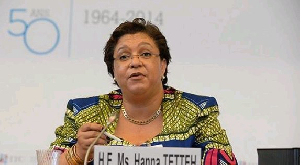
Hannah Tetteh, Ghana's former Minister for Foreign Affairs, emphasizes the urgent need for Electoral Commission (EC) reforms to restore public confidence in Ghana's electoral process. According to Tetteh, the EC's current state is characterized by a lack of trust in its neutrality and competence, which undermines the credibility of elections .
Tetteh's concerns are rooted in the EC's handling of recent elections, which have been marred by controversy and disputes. She believes that comprehensive reforms are necessary to address these issues and ensure that the EC is truly independent and impartial.
The benefits of EC reforms extend beyond the electoral process itself, as they can also have a positive impact on Ghana's economy and international relations. For instance, a credible and transparent electoral process can attract foreign investment and promote economic growth.
Some key areas that require reform include:
- *Electoral Laws and Regulations*: Reviewing and updating electoral laws to ensure they are fair, transparent, and consistent with international best practices.
- *EC Independence and Accountability*: Strengthening the EC's independence and accountability mechanisms to prevent undue influence and ensure impartial decision-making.
- *Voter Registration and Verification*: Improving voter registration and verification processes to prevent fraud and ensure the accuracy of electoral rolls.
By addressing these areas, Ghana can strengthen its democratic institutions, promote public trust, and ensure the integrity of its electoral process.